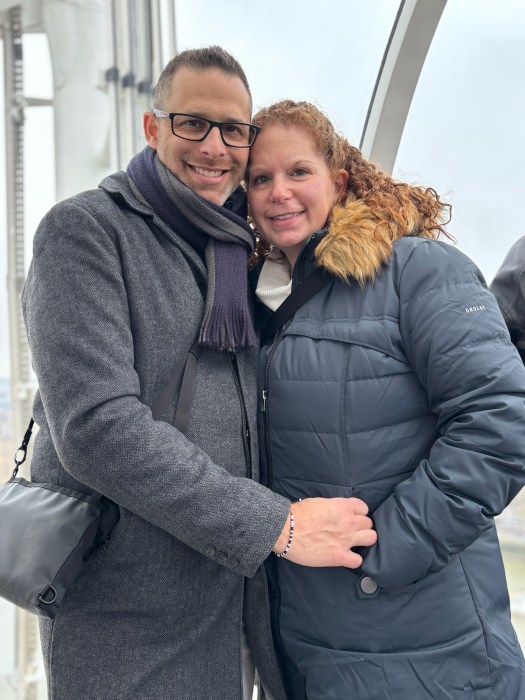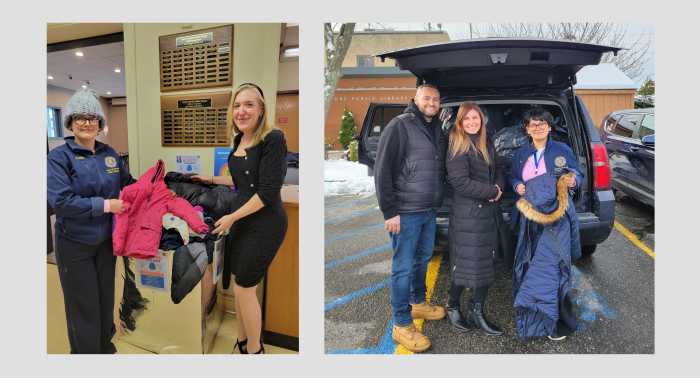Former Daler diagnosed with heredity disease
Jessica MacKenzie, 20, a 2010 graduate of Farmingdale High School, was recently diagnosed with CDH1, Hereditary Diffuse Gastric Cancer, a genetic disorder that causes stomach cancer. After getting her whole stomach removed MacKenzie fights to help spread awareness for this extremely rare disease.
Earlier this year, MacKenzie tested positive for the CDH1 mutation, the same disorder that caused her aunt to develop stomach cancer and die from it in 2010 at the age of 43. MacKenzie’s father Robert, grandmother and another aunt each tested positive for the cancer and had their stomachs removed last year. MacKenzie said although her endoscopy did not test positive for the cancer, she “wanted to live a life free of stomach cancer.”
Less than 3 percent of cases of gastric cancer are caused by Hereditary Diffuse Gastric Cancer. There is an estimated 150 families worldwide known to have this rare disease. HDGC is an inherited cancer syndrome that leads about an 80 percent risk of developing gastric cancer, an increased risk for colon cancer and about a 50 percent chance of lobular breast cancer.
HDGC is virtually undetectable; therefore it is usually not diagnosed until the cancer has metastasized. To date, the only known preventative treatment is a prophylactic gastrectomy (removal of the stomach).
This past summer MacKenzie’s blood test was positive for the mutation, making her one of the youngest to be diagnosed with a disease like this. After receiving this news from the test results, MacKenzie, a class of 2014 Junior at Virginia Tech, made the difficult decision to withdraw from her college education.
Her surgery was originally scheduled for Oct. 29 at Sloan- Kettering Memorial Cancer Center in New York. The surgery was cancelled due to Hurricane Sandy and rescheduled for Nov. 8.
She underwent a four-hour surgery, which involved taking out all of her gastric tissue and connecting it to the esophagus and the small intestine. Her stomach was made into one long bypass. Doctors said they identified 13 spots of cancer in her stomach before removing it.
Following surgery, MacKenzie was in hospital recovery for a week. She could not each or drink anything for three days, allowed only ice chips. Gradually, she was able to eat Jello-O and soft food like applesauce and mashed potatoes.
“It was awful,” said MacKenzie. “I’m such a food junkie; I hated not being able to eat.” Now, already able to eat anything she wants, she is trying to spread awareness for a disease that goes unknown for many people until it is too late.
With a recovery time of about eight months and eating smaller portions of food, MacKenzie has made great progress and soon should be back to her normal ways of eating. In the process, her family, including her mom, dad and brother have all been there for each other with a sense of humor, staying positive.
MacKenzie’s mother, Jane said, “Unfortunately this nightmare isn’t over; Jessica’s younger brother (FHS class of 2015) still has to be tested for the mutation.” Jane said although her daughter has lessened the risk for stomach cancer, she now has to worry about lobular breast cancer and colon cancer. And that is not it. According to MacKenzie’s mother, “She [Jessica] will have to undergo in-vitro fertilization so she does not pass the mutation to her children,” when she decides to start her own family.
“Through all this, Jessica has fought to turn lemons into lemonade; spreading awareness has become her passion,” said her mother. MacKenzie has also been making bracelets to help spread awareness. She has been selling each bracelet for $10, making about $7,000, with 100 percent of the proceeds benefiting No Stomach for Cancer, a non-profit organization that has helped the MacKenzie family through their diagnosis and recoveries.
She has also started a Facebook petition to win a visit to be on the show Ellen and speak about her cause. To sign her petition, visit www.facebook.com/SendJessToEllen/. To purchase bracelets for awareness visit www.facebook.com/BeadsForBellies/.


































